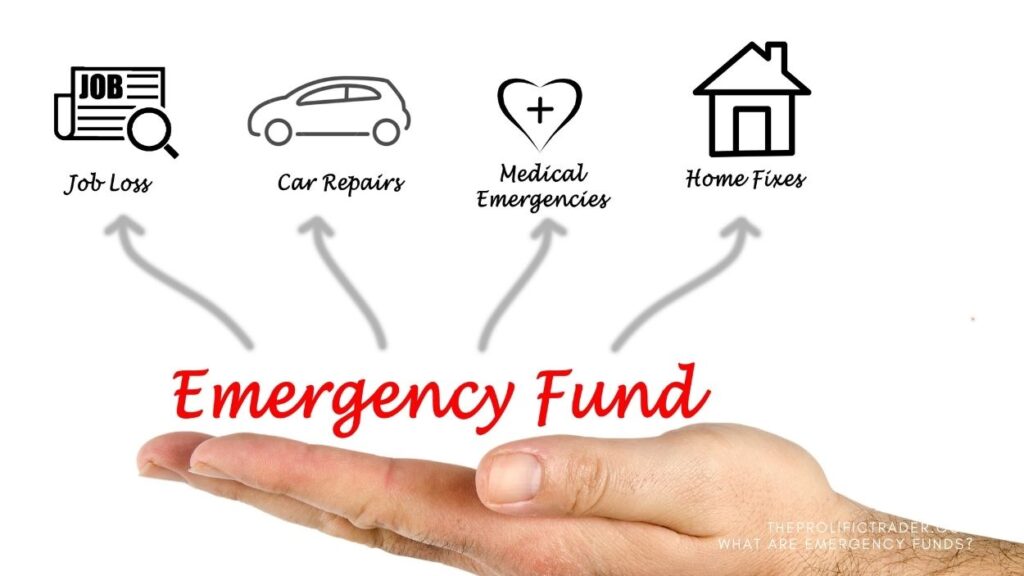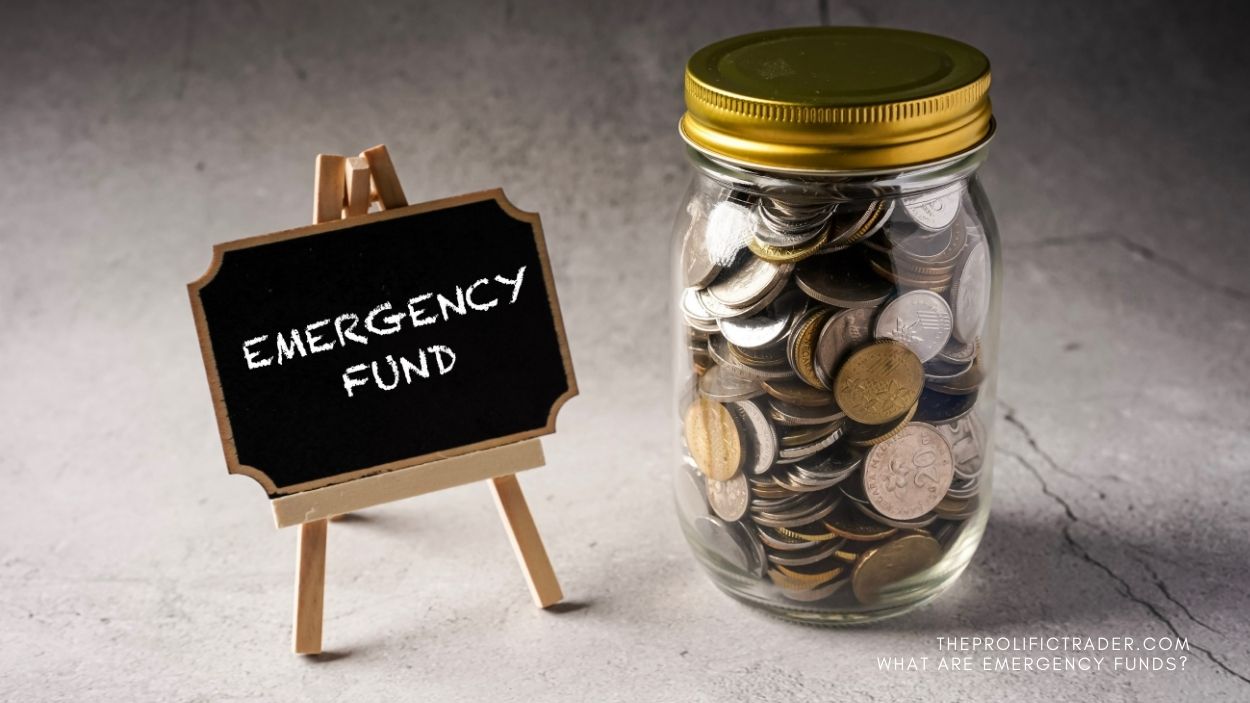We should aware of that What are emergency funds? and how they works in an emergency situations.
You never know what will happen in life. A natural disaster might damage or destroy your house, or you or your partner might get sick and not be able to work. You could also get laid off or fired.
There’s no doubt that a sudden loss of income can have a big impact on your finances. It can make you more likely to use your credit cards to pay for things that you may never be able to pay off. It’s at this point that the Emergency Fund comes in and saves the day for you. When something bad happens, you need to have money set aside for that.
What are emergency Funds?
An “emergency fund” is a source of money that you can use if things in your life go bad for a short time.
What are Emergency Funds?
Having an emergency fund is a way to make sure you have money in case of a financial emergency. These emergencies may be like getting sick and not having a job. Most financial experts say that people and families should have between three and six months worth of expenses in a cash-equivalent account at all times.

It Is Important To Start An Emergency Fund At The Right Time.
There are some things to keep in mind before you save an emergency fund or do anything else with your money. First, you’ll want to pay off any big credit card debts.
The Best Way To Start An Emergency Fund Is To Save Money For It Now.
The best way to start an emergency fund is with some money or a lot of money. This might seem like common sense, but let us show you why we think this is true. There’s a chance that once a year you’ll get a tax refund that gives you a lot of money. It might be a bonus at work or money from a cash-rich relative that gives you the windfall instead. Rather than spending the money on a pair of expensive shoes or a hundred expensive beers, put it in a cash-equivalent account that will earn you money over time.
It’s better to start from scratch and go little by little if you don’t have any big money coming your way. Save $50 or $100 a month by setting up a deal with your bank. You can do this as long as you can afford it. People may not notice it. If overdrafts are going to be very noticeable, make sure you budget for it so it doesn’t happen.
How Much Money Do I Need To Have In Case I Need It?
Between three and six months’ worth of your household income should be kept on hand at all times to deal with unexpected problems. Recently, some people have said that 8-12 months might be a better idea because of the current economy. If you have 6 months to spare, you should be able to weather most storms.
Try to figure out how to deal with your own situation. If you have a well-off parent, grandparent, or other relative you can turn to for money when you need it, that will obviously change your needs. But no matter what, everyone should have at least three months’ worth of expenses on hand.
In order to figure out the magic number, you’ll need to figure out how much money you make each month.
To keep your emergency fund, you should put it in a safe place.
This means that liquid is liquid, and it’s the same as liquid You’ll need to be able to get your emergency fund within a day or two of something bad happening, and you’ll want it to be there in full. This means that you should never, ever keep your emergency fund invested in anything even remotely risky like stocks. Consider the following.
It’s a savings account. You know what these things are. Banks are known for them. Most of the time they don’t pay interest, but the government will cover up to a million dollars if a bank goes under.
GIC (Guaranteed Investment Certificate).
A good place to keep your emergency fund is in this safe place Keep in mind, though, that you’ll likely have to put your money in a GIC for a certain amount of time before you can get your money back.
If you have a short-term savings goal in mind, a cashable GIC could be a good fit between a high rate and some flexibility without having to pay a penalty for taking it out early.
If you agree to keep your money for as long as five years, some banks will give you a better rate of return on your money. Some GICs will charge you a lot of money. if you need the money quickly. Most GICs have a minimum deposit of $500 or more, but some don’t have that.
Savings accounts with high interest.
There is a another great option to think about. Some online financial institutions will offer interest rates that are as good as or better than GICs, but without all the red tape. As high as 2% is possible. Those that are the best will not have a minimum deposit, fees, or limits on how many times you can deposit or withdraw money. They will also be guaranteed by the government up to a million dollars if the institution fails.
Before start investing your investing or trading journey, Ensure that you know
- What are emergency funds?
- How much should I have to save in an emergency fund?
Also Read


